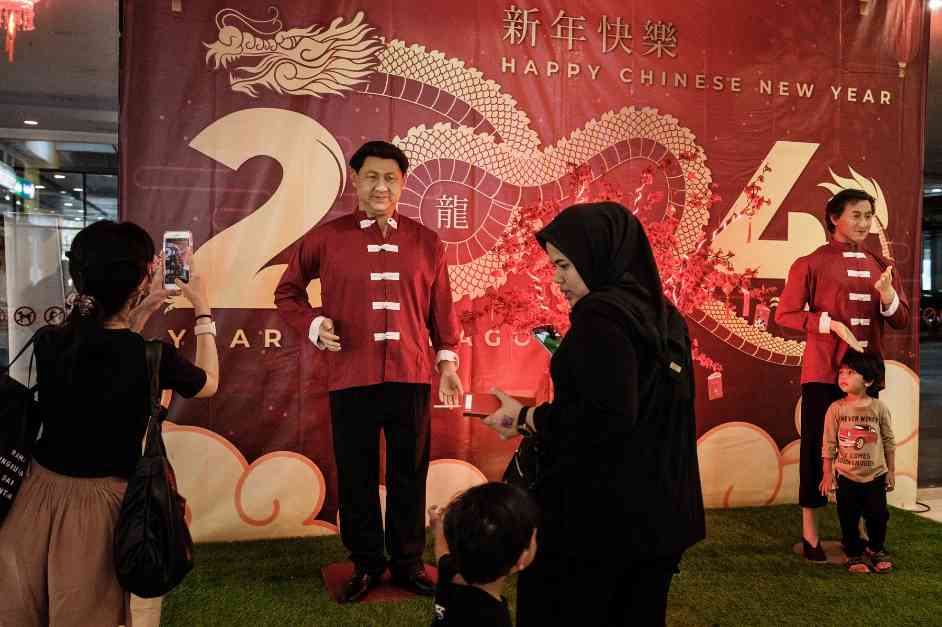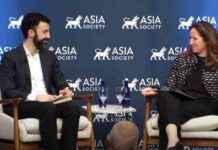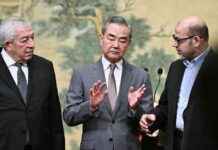China’s Cultural Diplomacy in Indonesia: Impact on Muslims
Mandarin lessons sponsored by the Chinese government are held every Tuesday and Thursday inside Southeast Asia’s largest mosque, Masjid Istiqlal, in Jakarta, the capital of Indonesia. The teachers and course materials for the Mandarin lessons are provided free of charge by the Confucius Institute at Universitas Al Azhar Indonesia, a university that seeks to “apply universal Islamic values in character building” as part of its mission. According to the Confucius Institute’s website, Indonesia has nine Confucius Institutes across the country.
Masjid Istiqlal has a capacity of 120,000 people and was inaugurated in 1978 as Indonesia’s national mosque. The mosque records around 7,000 foreign tourists every month, with the biggest group being from China at about 600 to 700, followed by visitors from Japan and South Korea. Twenty-five registered students, 20 of whom work at the mosque, take the Chinese classes. One of them is Saparwadi, the mosque’s public relations and protocol subsection chief, who took his first Mandarin class when the program launched in February this year.
Saparwadi expressed his happiness with the initiative, stating that better Mandarin proficiency among Masjid Istiqlal’s staffers will mean better service for the mosque’s international visitors. He highlighted the challenge of communicating with Chinese tourists who struggle with English and Indonesian, often resorting to sign language. The mosque lacked funding for Mandarin lessons until the Chinese embassy initiated the program after meetings between Islamic figures in Indonesia and Lu Kang, China’s ambassador from 2022 to May 2024.
China’s Engagement with Indonesia’s Muslim Community
Indonesia is a secular democracy officially recognizing six religions, with Islam being the predominant faith, with around 87 percent of the country’s population identifying as Muslim. The Ming Dynasty admiral Zheng He played a significant role in spreading Islam throughout the Indonesian archipelago. As China increases its engagement with the Global South and the Muslim world, it has been reaching out to various Muslim organizations and enhancing people-to-people exchanges with the Muslim community in Indonesia.
Johanes Herlijanto, co-founder, and chairman of the Indonesian Sinology Forum, noted that the establishment of the first Confucius Institute in Indonesia at an Islamic university reflects China’s diplomatic efforts aimed at enhancing its image among the Muslim community in Indonesia. Chinese diplomatic efforts towards the Muslim community in Indonesia are geared towards holistic improvement in China’s reputation.
In March, former ambassador Lu Kang met with Yahya Cholil Staquf, the general chairman of Nahdlatul Ulama, an Islamic organization with tens of millions of members. This meeting followed an event in 2022 with Nahdlatul Ulama’s Ansor Youth Movement. In April this year, the Chinese embassy collaborated with Muhammadiyah, another Islamic organization with tens of millions of members, in a Ramadan care-package donation event and iftar. The Embassy’s Interim Chargé d’Affaires Zhou Kan extended Ramadan greetings to Indonesian Muslims and discussed Indonesian President-elect Prabowo Subianto’s visit to China in April, highlighting the strong China-Indonesia relations.
Efforts to Counter Negative Sentiments
In September last year, Lu met with the mosque’s Grand Imam Nasaruddin Umar and its management board members, emphasizing exchanges and cooperation between the two countries in the fields of religion, culture, and education. Visits to Xinjiang by members of Muhammadiyah and the mosque indicate China’s interest in developing relations with Muslim organizations, particularly in light of Indonesia’s demonstrations protesting China’s treatment of Uyghurs.
Indonesia has been an outlier among Muslim countries in its demonstrations supporting the Uyghur people, with a significant portion of the population prioritizing the protection of Uyghur communities in China. However, the Indonesian government’s stance on Xinjiang has been nuanced, as Jakarta voted against discussing Xinjiang at the United Nations Human Rights Council in 2022. Jakarta’s representative to the UN in Geneva expressed concerns about the motion’s lack of meaningful progress.
China’s Diplomatic Efforts and Public Perception
China’s diplomatic efforts in Indonesia aim to counter negative sentiments related to the Uyghurs, particularly through engagements with Muslim circles and other Indonesian audiences. The strategy includes inviting Indonesian individuals to witness the situation in Xinjiang firsthand to challenge Western media portrayals. Some academic circles in Indonesia have echoed arguments supportive of China’s policies, indicating the success of China’s educational diplomacy.
Muhammad Zulfikar Rakhmat, director of the China-Indonesia desk at the Center of Economic and Law Studies, acknowledges that China’s Muslim diplomacy has resonated with certain segments of Indonesian society but may not have achieved broad success among the general public. Despite this, China’s alignment with Muslim nations in condemning Israel’s actions in Gaza may impact perceptions in Indonesia, positioning Beijing in opposition to Washington on issues of colonialism.
In Conclusion, China’s cultural diplomacy in Indonesia, particularly within the Muslim community, reflects strategic efforts to enhance its image, counter negative perceptions, and strengthen bilateral relations. Through initiatives like Mandarin classes at Masjid Istiqlal and partnerships with Islamic organizations, China seeks to build bridges and foster understanding among diverse communities in Indonesia. As geopolitical dynamics continue to evolve, China’s engagement with Indonesia’s Muslim population will likely remain a crucial aspect of its broader diplomatic strategy.

















